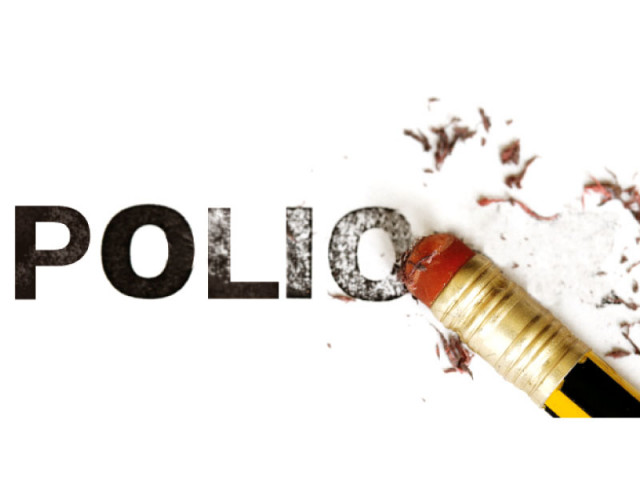High-cost campaign: Rs27b polio emergency plan under the radar
Meeting this week will discuss role of provinces, UN agencies’ exorbitant charges.

Meeting this week will discuss role of provinces, UN agencies’ exorbitant charges. PHOTO: FILE
The 27.5-billion-rupee National Emergency Action Plan for Polio Eradication has come under scrutiny even before its implementation with the government convening a meeting of all stakeholders on Wednesday to remove identified flaws.
The oversight committee will address issues regarding the high cost of the three-year plan and the role of provincial governments in checking the spread of poliovirus, according to officials.
The committee’s maiden meeting was held last week to address lacunae in the planning, but it remained inconclusive. Both the Prime Minister’s Polio Monitoring and Coordination Cell and Ministry of Inter-Provincial Coordination (the executing agency) did not come up with any suggestions to modify the issues that have been identified.
The PM’s polio cell has prepared a three-year emergency plan for polio eradication, with input from United Nations agencies, including the World Health Organisation (WHO) and Unicef. In order to finance the plan, the federal government is to take an expensive $227 million loan from the Islamic Development Bank (IDB) and a concessionary loan of $24 million from the World Bank. The officials said the oversight committee will look into the missing links in the PC-I document, including the role of provincial governments in the eradication of polio and the strategies for areas where polio cases are on the rise, as well as the commitments by provincial governments beyond 2015 – the year when the federal government will stop financing social sector projects.

The provinces have demanded that there should be specific chapters in the PC-I document that will explicitly define their roles.
The oversight committee will also review the cost of the programme, as concerns have been raised by experts over the sky-high expenses involved.
The polio vaccine procurement cost of the three-year plan is only $106.6 million, or Rs9.7 billion – 35% of the total cost. Official documents show that more than 50% of the total programme cost will go to the WHO, which is responsible for operations and surveillance, and the Unicef, responsible for vaccine procurement and communication.
Despite the huge allocation for the emergency programme, experts within and outside the government say its success hinges on the success of ongoing polio campaigns. They are of the opinion that unless routine coverage increases to 80% from the existing below 45%, the emergency programme will not succeed.
The amount the government is paying to vaccinators is a mere Rs250 per day, despite the fact that they are exposed to death threats and are performing jobs in highly insecure areas like the Federally Administrated Tribal Areas (Fata) and Balochistan.
The spokesperson for the PM’s polio cell, Mazhar Nisar, insists that the PC-I is well defined and the federal government’s role is limited to the extent of ensuring an uninterrupted supply of polio vaccines, and coordinating between the federating units and international agencies.
President Zardari’s meeting
Adviser to the Prime Minister on the Polio Campaign Shahnaz Wazir Ali met with President Asif Ali Zardari in Karachi for a review meeting on Monday.
“The campaign will carry on with a different strategy,” the adviser told The Express Tribune.
The door-to-door campaign was stopped after five female health workers were shot last month in seemingly coordinated attacks at the start of a nationwide polio vaccination drive. Sindh and Punjab have the lowest rate of polio cases despite a larger population, while Khyber Pakhtunkwa and the Federally Administered Tribal Areas (Fara) have the highest. A total of 34 cases were reported in Pakistan over the last 13 months of which four were from Sindh, Wazir Ali said.
WITH ADDITIONAL REPORTING BY FARHAN SHARIF IN KARACHI
Published in The Express Tribune, January 1st, 2013.



1724319076-0/Untitled-design-(5)1724319076-0-208x130.webp)















COMMENTS
Comments are moderated and generally will be posted if they are on-topic and not abusive.
For more information, please see our Comments FAQ